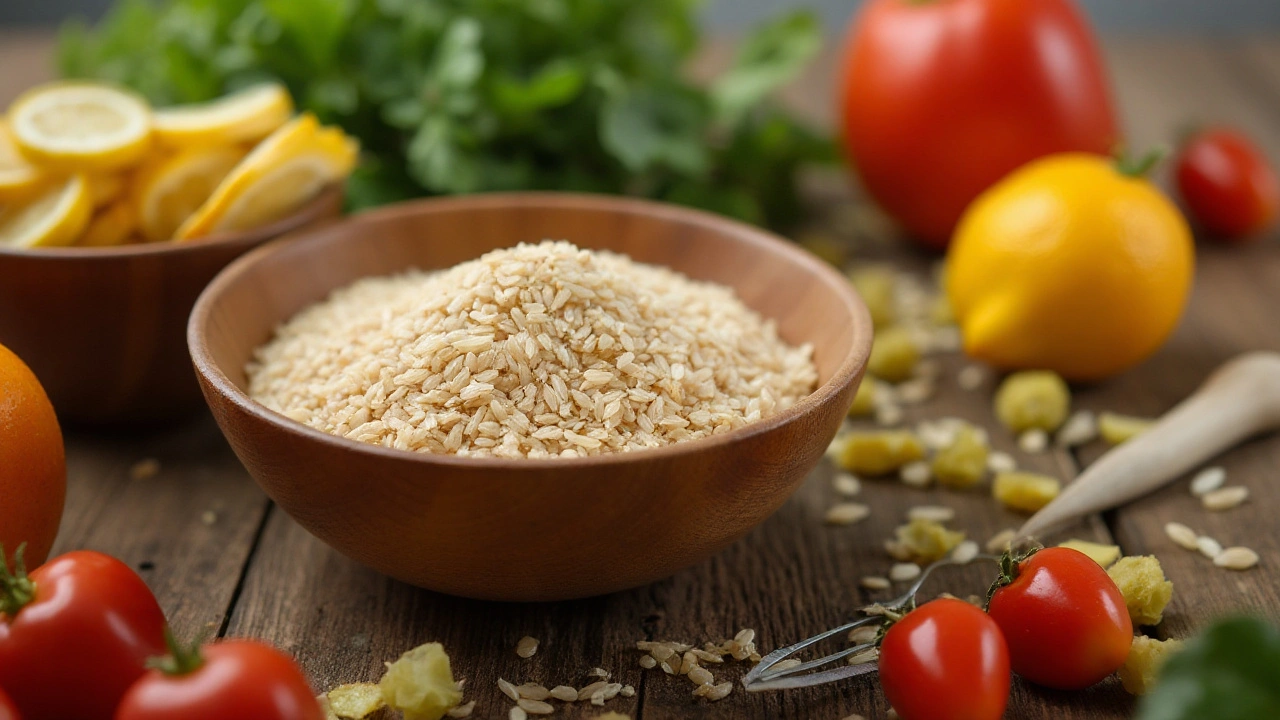Rice Bran: Benefits, Uses, and Safety
Rice bran is the outer layer of the rice grain that gets removed during milling. It’s packed with fiber, oil, and plant compounds like gamma-oryzanol and phytosterols. People use rice bran as a cooking oil, a supplement, or a food ingredient for its nutrition and mild health effects.
What rice bran can do for you
Rice bran oil is a good source of monounsaturated and polyunsaturated fats, which are better for heart health than saturated fat. Some studies show rice bran components can lower LDL ("bad") cholesterol modestly, mainly thanks to phytosterols and gamma-oryzanol. The bran’s fiber also supports digestion and helps you feel full longer.
Rice bran contains antioxidants such as tocopherols and tocotrienols (forms of vitamin E). These can protect cells from damage and may help skin health when used in topical products or as part of a balanced diet.
How to use rice bran
As an oil, rice bran works well for medium-high heat cooking because it has a high smoke point. Use it like olive or vegetable oil for frying, roasting, and salad dressings. For digestion or cholesterol support, people take rice bran supplements or rice bran oil capsules—follow the product label and talk to your doctor before starting.
If you want more whole-food benefits, try brown rice with the bran intact or add stabilized rice bran powder to smoothies and yogurt. Stabilized bran is heat-treated to stop the oil from going rancid, so it lasts longer and keeps its nutrients.
How much? There’s no single right dose. Cook with 1–2 tablespoons of rice bran oil a day or use supplements as directed. If you’re aiming to lower cholesterol, don’t rely only on rice bran—combine it with diet changes, exercise, and medical advice.
Watch for interactions. Rice bran can add a small cholesterol-lowering effect on top of prescription statins. That can be helpful, but always tell your doctor if you add supplements so they can adjust meds or monitor labs.
Safety and product tips: pick stabilized rice bran or fresh rice bran oil with a neutral smell. Store oil in a cool, dark place or refrigerate after opening to prevent rancidity. Buy brands with third-party testing when possible.
Keep in mind rice can accumulate trace arsenic. Rotate grains in your diet and choose brands that test for contaminants, especially if you eat rice products often or give them to children.
Who should be cautious? People with rice allergies should avoid rice bran. If you have liver disease, gallbladder issues, or take multiple medications, check with your healthcare provider before using concentrated rice bran supplements.
Want to compare options? We have a related article on red yeast rice and other natural cholesterol remedies that looks at evidence and safety. Use rice bran as part of a practical plan—it's a helpful tool, not a magic fix.

